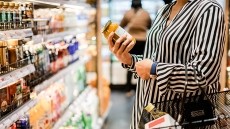Pinning down European food policy debate: Report
The report, “What’s cooking in the EU? Current and upcoming trends in food policy,” from the European Crisis Management Partnership (ECMP), examines the current EU position on four major food policy trends – food safety, food labelling, sustainability and new technologies – and looks at how they are likely to be dealt with in the future.
Firstly, the report highlights the increased globalisation of our food supply, which has led to greater pressure being put on the European food safety system. Its authors claim that European food safety regulation is likely to remain a controversial issue, pointing to international trade disputes and pesticide regulation as particularly sensitive pressure points.
“International cooperation, regional network integration and third world country collaboration are becoming priority areas in the EFSA’s quest to prepare for the global nature of food safety risks,” it said.
Labelling debate
Increased food safety risks – or even perceived food safety risks – have led to a great deal of debate on the best way to keep consumers informed throughout the EU. The discussion ranges from what is the best way to label nutritional elements, whether in the form of GDAs (guideline daily amounts) or a UK-style traffic light system, to whether and how to add labels referring to carbon footprints and animal welfare.
The report says that it is “highly probable that food labelling requirements will evolve at separate speeds throughout the European Union” but claims that both companies and consumers stand to benefit from labels that allow for more product differentiation.
In particular, the report claims that sustainability is likely to remain a topical issue and one in which consumers increasingly expect to be able to make informed decisions.
It said: “No matter which aspect of the lifecycle assessment is considered top of the sustainability agenda, a claim for standardised labelling will be implied, if consumers are expected to compare the environmental footprint of different products and make more sustainable choices.”
A similar debate has sprung up around new technologies, with biotechnology – in terms of regulation and labelling – likely to remain a hot topic, the report said. Nanotechnology, on the other hand, could still find an easier path to achieving consumer acceptance, although so far discussion has been limited.
“It is important to note that many nano-applications have, unlike most GMO crops, clear consumer benefits,” the report said.
A copy of the report is available free of charge by contacting syblq.wrofba@enmbe-ce.pbz.
























